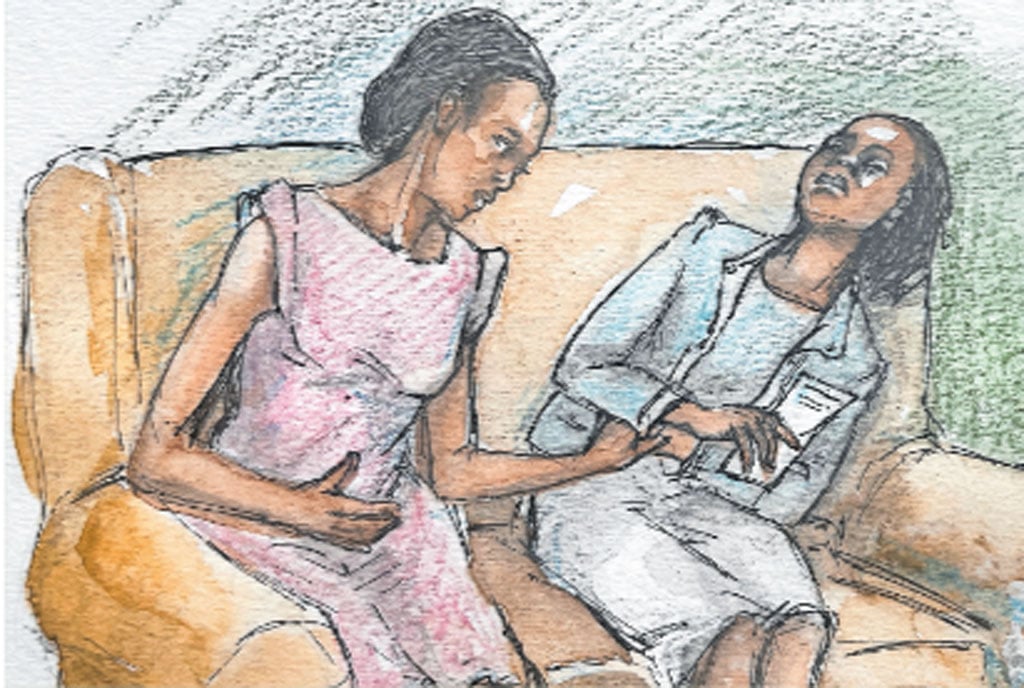Prime
Court rules on case of adverse effects of a surgery a patient was not warned about

There was no chance of repairing the internal sphincter because it was totally disrupted. PHOTO/ILLUSTRATION
What you need to know:
- There was no chance of repairing the internal muscle because it was totally damaged, meaning she would continue to have some degree of fecal incontinence.
In 2003, a doctor was dragged to court by a patient, who suffered adverse effects of a surgery performed on her anal region. Two surgeries were performed on the patient in June 2000, and March 2001, for what were diagnosed as a fistula and a cyst.
It was apparent that during the two surgeries the patient’s sphincters were injured, resulting in loss of continence to stool and gas, leading her to inconveniently soiling her underwear.
The gist of the case was that the surgeon did not warn the patient of any risk of damage to her sphincters. If the patient had been warned of this danger, she says she would have asked for a second opinion, before undergoing surgery.
From the evidence on record, the doctor owed the patient a duty of care, as there existed a doctor-patient relationship. The doctor admitted as much; the patient was referred to him and he made a diagnosis of a fistula at the 7 o’clock position and a large cyst in the anal region. The doctor, further, did not deny that, he twice, operated on the patient.
Court ruled that once the doctor agreed to diagnose and treat the patient, he owed her a duty of care. In a ruling, in an earlier case court held that a duty of care arises, once a doctor or other health care professional agrees to diagnose or treat a patient. The professional assumes a duty of care towards that patient.
The next issue for court to determine was whether or not the surgeon breached that duty of care. The patient testified that in March 2000, she developed an abscess in the anal region, which was drained by her gynaecologist.
The problem again occurred in June 2000 and she was referred to the same surgeon, who operated on her in June 2000. The problem, however, recurred and the surgeon carried out yet another operation in March 2001. The patient said before the first operation, the doctor assured her that her problem was nothing major and that she should be okay, thereafter.
The patient further content that before undertaking the second surgery, the doctor did not warn her of any risk of damage to her sphincter and testified that if the doctor had given her the warning, she would have sought a second opinion.
The second operation did not cure the problem, but instead the patient lost continence to stool and developed incontinence to gas and started soiling her underwear. The patient consulted the surgeon when she developed these complications but the surgeon told her that the problem was with her diet and it had nothing to do with the operation.
The patient was not satisfied with the explanation and decided to consult another doctor. The doctor who was consulted noted that the patient presented with fecal incontinence and pain during sexual intercourse immediately after the second surgery. He also observed that a similar surgery had been carried out the previous year.
Although the doctor did not see any fistula when he examined the patient he noted that there was complete absence of voluntary and reflex external and internal sphincter contraction.
The doctor then referred the patient for specialized management to a hospital in the United Kingdom. The relevant correspondences were tendered in court as evidence.
The patient travelled to St. Mark’s Hospital in London where an ultrasound scan was done and a report prepared and the report, too, was presented as evidence in the case. The report noted that there was almost complete fragmentation of the internal sphincter and extensive disruption of the external sphincter, which injuries were consistent with damage following stretching of the anal muscles more than likely following manual anal dilatation.
The specialist doctor in London also wrote a report to the doctor who had referred the patient. In the letter the doctor stated that the patient had some sphincter damage following surgery for fistula due to sepsis.
The patient’s history was consistent; that she had had persistent sepsis in the anal region culminating in the two operations. The doctor noted that following the two operations, the patient no longer had sepsis but unfortunately had been rendered incontinent to liquid stool as well as flatus which were infrequent but distressing for a lady of her age.
The doctor, in his report, noted that when he examined the patient he observed that the patient had clear evidence of previous surgery with scarring at both the anterior aspect as well as at around about 9 o’clock position. The doctor further observed that it was interesting to note that the report from the original operation suggested that the surgery had been carried out at the 7’oclock position but to him there was no evidence of surgery at that position.
The doctor further stated that digital examination revealed no sepsis but rather quite marked damage to the sphincters in the anterior aspect around the scarring.
According to the doctor, the ultra sound report noted total disruption of the internal sphincter and fragmentation of the external sphincter which suggested that in addition to excising some of the tissue during surgery the doctor must have stretched the muscles causing them to fragment.
To the specialist, the only way the patient’s situation, to some degree, could possibly be improved was by repairing the anterior external sphincter injury.
There was no chance of repairing the internal sphincter because it was totally disrupted, meaning that she would continue to have some degree of passive incontinence particularly to flatus, regardless of the surgery she would undergo.
The doctor also stated that the patient’s musculature would deteriorate with age, so her incontinence would likely become worse with time and if she began to lose solid stool at any time, then it would then be worth pursuing surgical intervention.
The doctor further noted that the results of such an intervention are initially very good but the long term results were usually significantly poor and therefore delaying surgery until she really needed it was the ideal scenario.
On the issue of starting a family, the specialist recommended caesarian section rather than normal delivery as further compromise to the sphincters was likely to result in significant continence.
To be continued...




